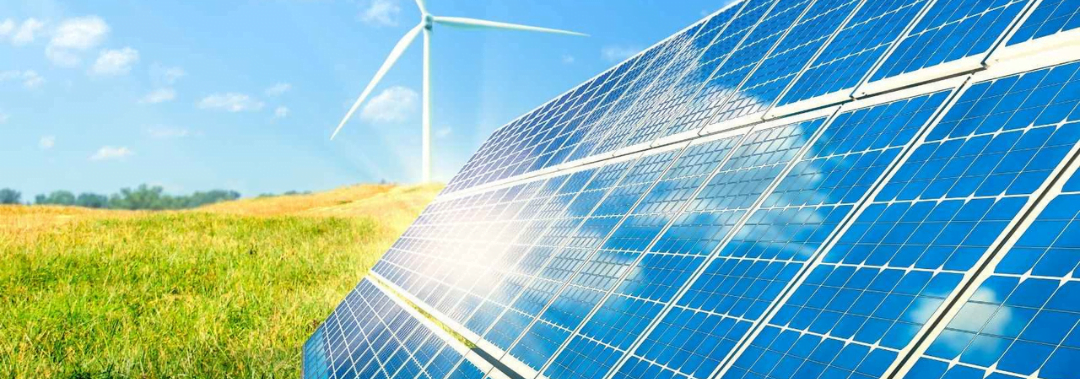Agriculture Off-Grid Solar System
Solar PV System Operating Independently for Farms

Are you looking for a long-term, sustainable energy solution for your farm, independent of the electricity grid? At Synergy Solar, we specialize in designing and installing agriculture off-grid solar power systems that free you from reliance on traditional grid electricity, providing a reliable source of clean, renewable power for your farming operations.
Also known as Stand Alone Power Systems or Remote Area Power Systems, off-grid solar systems are particularly suited for farms and rural areas that are either too remote for grid connection or are committed to self-sufficiency through solar energy. Farms that cannot or choose not to connect to the state electricity grid can greatly benefit from this solution.
Off-grid solar systems for agriculture are ideal in regions where utility companies face challenges in providing grid services. With an off-grid solar power system, your farm can become entirely self-reliant, generating 100% of its energy needs through solar power coupled with battery storage. Careful planning of energy usage is crucial to ensure your farm has sufficient power throughout the day and night.
A key feature of off-grid systems is their ability to both generate and store energy independently. However, prudent management of power consumption is essential to ensure that your energy requirements are met, especially during low sunlight periods.
While off-grid systems provide protection from power outages or grid failures, they lack a grid backup in cases where the solar power generation is insufficient.
Although off-grid systems are more common in remote agricultural settings, their use is limited in metropolitan areas due to the availability and cost-efficiency of grid electricity. Additionally, off-grid system owners miss out on certain financial incentives, such as net metering, rebates, and tax credits, which are available to grid-tied solar power systems.
For farms located in areas with access to grid electricity, a grid-tied solar power system may offer financial incentives and lower installation costs.
Why Solar is Ideal for Agriculture Off-Grid Systems?
Operating an Agriculture Off-Grid Solar Power System requires careful planning and expertise, as these systems rely entirely on solar energy for electricity. At Synergy Solar, we have the experience and skills necessary to design and install advanced off-grid solar systems that integrate solar panels, batteries, and generators to meet your farm’s energy needs, ensuring reliable and sustainable power.
Designing and Installing Agriculture Off-Grid Solar Power Systems
- Solar Panels: Capture sunlight and convert it into electricity for farm operations, such as irrigation, machinery, refrigeration, and lighting.
- Batteries: Store excess solar energy for use during nighttime or cloudy periods, ensuring continuous power for essential farming activities.
- Generators (Optional): Provide an additional power source when solar and battery storage are not sufficient.

Advantages of Agriculture Off-Grid Solar Power Systems
Off-grid solar power systems present a compelling array of benefits, offering a sustainable and self-sufficient energy solution for a diverse range of users. Here’s a detailed exploration of the advantages they bring:
The cost of paying utilities can be avoided by remote homes.
You can meet all your energy requirements if you plan carefully.
Power outages will not be a concern.
You can generate your own energy.
Disadvantages of Agriculture Off-Grid Solar Power Systems
Off-grid solar power systems represent a promising avenue for energy independence and sustainability, yet they come with their share of limitations and challenges. Understanding the drawbacks is crucial for making informed decisions about whether such a system is suitable for your needs.
They do not operate in metropolitan.
Owners using this solar power system are not eligible for some solar power financial incentives.
There is only battery as a backup and no grid to assist in case power goes out.
Installation process is quite difficult as compared to grid systems
These are more expensive than grid tied solar power systems.

How Agriculture Off-Grid Solar Systems Work?
An Agriculture Off-Grid Solar System generates electricity through solar panels and stores it in batteries for continuous use, day or night. These systems are self-sustained and operate independently from the public electricity grid. Here’s a step-by-step guide on how it works:
🔋 Solar PV Panels: Capture sunlight and convert it into direct current (DC) electricity.
🔄 Inverter: Converts DC electricity into alternating current (AC) to power farm equipment and systems such as irrigation, refrigeration, and lighting.
⚡ Battery Storage: Excess energy generated during the day is stored in batteries to ensure power availability during nighttime or cloudy periods.
🔌 Energy Management System: Optimizes the use of stored energy and ensures that critical operations have access to power at all times.
Applications of Off-Grid Solar Solutions in Agriculture
🌾 Irrigation Systems
Off-grid solar systems can power irrigation pumps, ensuring consistent water supply for crops even in remote areas without grid access.
🥶 Refrigeration Units
Refrigeration systems powered by off-grid solar can preserve produce and prevent spoilage, maintaining product quality.
🚜 Farm Machinery
Off-grid solar can power essential farm machinery, ensuring productivity and reducing reliance on expensive fuel-powered generators.
🐄 Livestock Operations
Off-grid systems can provide reliable power for lighting, ventilation, and automated feeding systems in livestock operations.
Key Features of Agriculture Off-Grid Solar Systems
✅ Complete Independence from the Grid
Agriculture off-grid solar systems operate without any connection to the utility grid, providing complete energy independence.
✅ Battery Backup
With battery storage, farms can store surplus energy generated during the day and use it during the night or in low sunlight conditions.
✅ Self-Sufficient Operation
Off-grid solar systems are designed to meet 100% of a farm’s energy needs, ensuring continuous power for critical farming activities.
✅ Cost-Effective
Once installed, off-grid solar systems significantly reduce or eliminate energy costs, particularly in remote areas where grid electricity is expensive or unavailable.
✅ Sustainability
Off-grid systems reduce a farm’s carbon footprint by relying entirely on renewable solar energy, making agricultural operations more environmentally friendly.
Further Factors to Consider Regarding Solar Power Systems

Choosing the type of solar power system for your home is undeniably crucial, but beyond that, there are other factors to consider, such as:
Solar Power System Size: The size of the solar power system you opt to install at your location hinges primarily on your energy needs and whether you intend to incorporate battery storage or generate electricity independently. Factors such as your power consumption habits and the amount of sunlight available for generation will influence the ideal system size.
Placement of Solar Panels: Although solar panels are commonly installed on rooftops, there are instances where ground-mounted posts may be utilized. This occurs when the roof is significantly aged, has an unconventional slope, or lacks adequate sunlight exposure.
Fixed vs. Sun Tracking Arrays: Solar arrays come in two varieties: fixed and sun tracking. Fixed arrays are the more prevalent option, being both cost-effective and straightforward to design and install. On the other hand, sun tracking arrays are employed to maximize solar power generation. By dynamically adjusting the angle of solar panels, sun tracking arrays ensure optimal exposure to sunlight, thereby increasing energy yield.
Solar Panel Material: Solar panels come in various materials, including crystalline silicon, monocrystalline, polycrystalline, and thin film. Solar installers possess the expertise to recommend the most suitable material for your solar power needs.
Solar Power System Financing: While some homeowners can afford to purchase a solar power system outright, others may require financial assistance. Loans are readily available for this purpose. Another viable option is leasing, which allows homeowners to enjoy the savings and financial incentives of solar power without the burden of upfront costs.
